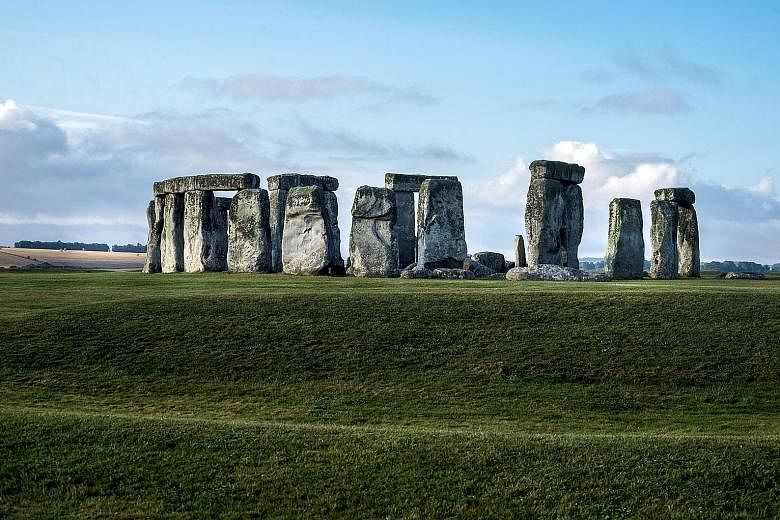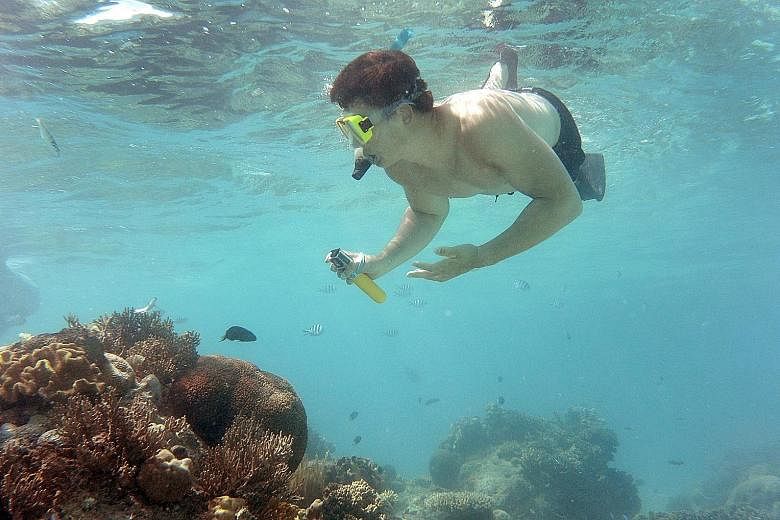NEW YORK • Stonehenge eroding under the forces of extreme weather. The city of Venice slowly collapsing into its canals. The gradual flooding of the Statue of Liberty.
Images like these, taken straight out of Hollywood catastrophe thrillers, were evoked by a joint report released on Thursday by Unesco, the United Nations Environment Programme and the Union of Concerned Scientists (UCS) detailing the threat that climate change could pose to Unesco World Heritage Sites on five continents.
The report, titled World Heritage And Tourism In A Changing Climate, highlights 31 sites in 29 countries that have already felt some impact from climate change, including well-known tourist destinations such as Easter Island and Yellowstone National Park. The list was drawn up based on peer-reviewed science literature, technical reports, local experts, and domestic evaluations of the sites prepared for the World Heritage Committee.
Mr Adam Markham, UCS' deputy director for climate and energy and the report's lead author, said while many of the sites were bound to be affected by factors such as a rise in sea levels, intense storms and wildfires, planning will help protect them.
"If we recognise the scale of the problem... then I think there is a lot we can do," he said.
Although the report emphasises the importance of the recent Paris climate accord, Mr Markham said emissions already affecting the climate are likely to create "a lot of change and impact". "We don't have enough resources to save every threatened asset," he said. "So, there are going to have to be hard choices made in every country."
However, all references to Australia were cut from the report after objections from Canberra, in a move scientists and activists yesterday called "extremely disturbing".
The report initially contained a chapter on Australia's Great Barrier Reef, which is suffering its worst bleaching in history, and sections on Kakadu National Park and the Tasmanian Wilderness, scientists said. But when the Australian Department of Environment saw a draft, it objected and every mention of Australia was removed.
"The department was concerned that the framing of the report confused two issues - the World Heritage status of the sites and risks arising from climate change and tourism," it said in a statement. The reef contributes an estimated A$6 billion (S$6 billion) annually to the economy, mainly through tourism.
Mr Will Steffen, one of the scientific reviewers of the axed section, said he was stunned. "The idea that government officials would exert pressure to censor scientific information on our greatest natural treasure is extremely disturbing."
NEW YORK TIMES, AGENCE FRANCE-PRESSE


